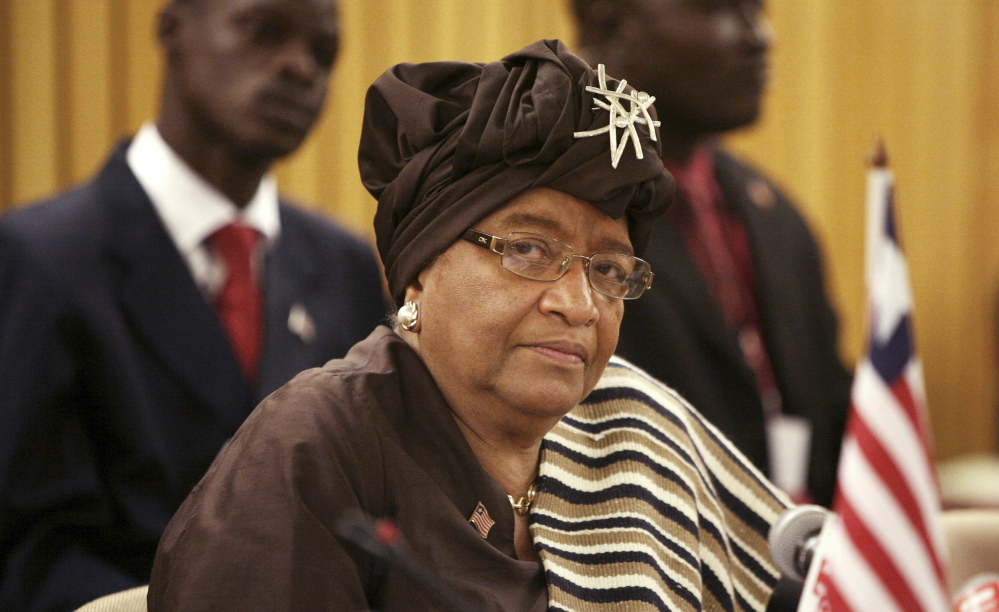MONROVIA, Liberia — Liberia’s president late Wednesday ordered the nation’s schools to shut down and most civil servants to stay home as an Ebola outbreak that already has killed more than 130 people in the country deepened.
Meanwhile, the U.S. Peace Corps said it was evacuating its volunteers from Liberia as well as neighboring Guinea and Sierra Leone as the regional death toll topped 670 people. The Ebola outbreak is now the largest recorded in history.
President Ellen Johnson Sirleaf, who is skipping a summit of African leaders in Washington this week amid the crisis, also called for the closure of markets in an area near the borders with infected countries Guinea and Sierra Leone.
“My fellow Liberians, Ebola is real, Ebola is contagious and Ebola kills,” she warned. “Denying that the disease exists is not doing your part, so keep yourselves and your loved ones safe.”
Fear and panic over the mounting death toll has prompted some rural communities to accuse foreign aid workers of bringing the deadly virus. Others have kept people with Ebola symptoms at home instead of bringing them to quarantine centers. In anger, one man recently set fire to part of the health ministry building in the Liberian capital, Monrovia, after his teenage brother reportedly died of Ebola.
Sirleaf said that security forces would enforce the new precautions taken a week after an American man of Liberian descent boarded a plane in Monrovia and flew to Nigeria, where authorities said he died of Ebola. The fact that he was able to board a plane and traveled through a major airport transit hub in Togo has only heightened fears about Ebola’s possible spread in the region.
The airline involved, ASKY, has suspended its flights to both the capitals of Liberia and Sierra Leone, and said passengers departing from Guinea would be carefully screened.
Ebola has no vaccine and no specific treatment, with a fatality rate of at least 60 percent. But experts say the risk of travelers contracting it is considered low because it requires direct contact with bodily fluids or secretions such as urine, blood, sweat or saliva. Ebola can’t be spread like flu through casual contact or breathing in the same air.
Patients are contagious only once the disease has progressed to the point they show symptoms, according to the World Health Organization. The most vulnerable are health care workers and relatives who come in much closer contact with the sick.
Send questions/comments to the editors.


